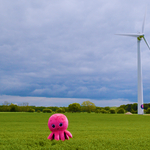Sign up for daily news updates from CleanTechnica on email. Or follow us on Google News!
While the purported slowdown in demand for EVs seems to find automakers halting or slowing their original electrification plans, EVs have actually reached 20% of global auto sales. That number is expected to increase exponentially, and so will EV jobs numbers.
In fact, by 2035, EVs could potentially account for 71% of US car sales and are expected to increase to 80% or more by 2050. The reasons for the EV market’s growth are numerous and include increased consumer awareness about the climate crisis, an evolution in EV battery power, and new models appearing in dealer showrooms. The result is that a whole new demographic of curious EV consumers is emerging, and, with them comes a need for more workers to meet EV manufacturing demands.
Legislation has helped fuel the EV industry. As momentum for EVs accelerates in the US, a skilled and trained auto manufacturing workforce is necessary for a successful transition. Two laws passed in recent years—the Bipartisan Infrastructure Law (BIL) and the Inflation Reduction Act (IRA)—each spurred investments in EVs and opened up new types of employment.
- The Bipartisan Infrastructure Law: This Law provides more than a decade of funding for EV charging infrastructure and offers grants to increase the amount of battery manufacturing taking place within the US. The Bipartisan Infrastructure Law is estimated to support more than 700,000 new jobs a year. These new jobs include 175,000 manufacturing jobs, 175,000 construction jobs, and 100,000 transportation jobs, according to the US Department of Transportation.
- The Inflation Reduction Act: The Act offers tax credits to consumers and incentives to manufacturers for domestic EV production. Since the IRA passed in 2022, companies have invested $85 billion in new EV and battery manufacturing and supply chain facilities, resulting in 82,000 new US jobs, according to data from the EV Jobs Hub.
The US is the top nation for attracting investments in EV and battery manufacturing, surpassing announced investments in China and other countries globally. Companies have announced $312 billion in planned US investments, up from about $75 billion when President Joe Biden took office in 2021, according to an NRDC-commissioned August 2024 report. After years in which China dominated EV manufacturing, the latest data is showing a dramatic turnabout: the US took the lead over China to be the top destination for these investments in 2022, just as the Inflation Reduction Act (IRA) became law.
Ad Targets Swing Voters to Enlighten Them about EV Jobs
The US is experiencing a surge in manufacturing and EV jobs. However, as the US has become more politically divided, so have attitudes toward EVs. Clearly, there is a disconnect between optimism for a resurgence in US job growth and pessimism that only a return to a proverbial golden era will soothe (disgruntled primarily white males) in the US. The commensurate quality of life that is associated with EV jobs gets buried in political wrangling, which translates into a lack of consumer knowledge about the transition to transportation electrification.
Many people don’t understand the employment possibilities inherent in clean energy in general or the EV industry in particular.
EV jobs in manufacturing, infrastructure, and technology provide meaningful careers across party lines. The majority of announced manufacturing investments in EVs have been in 10 states, 5 of which are critical presidential swing states. On their own, the states of Georgia, Michigan, North Carolina, Nevada, and Arizona have 68% of the total swing state electoral college votes. Key swing states like Michigan, Georgia, Arizona, Nevada, and North Carolina already have more than 90,000 EV jobs, whether directly or indirectly related to auto manufacturing. The discord over EVs affects consumers and workers.
Veteran political strategist Mike Murphy has launched EV Jobs for America with a six-figure ad buy. The new campaign coincides with the launch of the American EV Jobs Alliance, an effort to help build the industry and continue creating jobs. The American EV Jobs Alliance says that they are “working to build bi-partisan support for EV related manufacturing jobs right here in North America; both for American workers and for our close allies.”
Their first ad features the good-paying, US manufacturing EV jobs that have been created in Michigan, Georgia, and across the US. As part of a paid media campaign, these voters, who are going to be critical to the presidential election — along with key Senate and House races — are going to get lots of vital information about the benefits of EVs and why they are critical to the future of US industry. They’ll see on their channel a video called “Political Noise — Michigan.” The Michigan advertising campaign will launch immediately after Labor Day and is targeted at 217,000 key Michigan swing voters.
“Forget the political noise,” the male voiceover begins. “EVs mean good American jobs. Tens of thousands of manufacturing jobs. Right here. Right now.” As he speaks, images in banner-sized font restate the narrator’s words. “In Michigan. And more on the way with billions in new investment.”
 Chip in a few dollars a month to help support independent cleantech coverage that helps to accelerate the cleantech revolution!
Chip in a few dollars a month to help support independent cleantech coverage that helps to accelerate the cleantech revolution!
We see several scenes of footage of workers — males and females, all shades of skin color — in a US auto plant assembling EVs. “Want those jobs in China instead? We don’t.” A graphic of the state of Michigan appears with dropped pins indicating where EV manufacturing is taking place there. “We’re the American EV Jobs Alliance,” the narrator introduces as a drone overhead view of a parking lot filled with EVs appears. “We say electric vehicles are a big part of the future.” A flag-draped background with video inserts of several more workers assembling EVs fills the screen. “And we want those jobs in America.” A bold close-up of a Ford F-150 Lighting driving down a road followed by a graphic GIF of a window breaking support the narrator’s statements. “So remember. When politicians bash EVs, America loses.”
The EV Jobs for America Michigan ad has a clear message: forget politicians’ misinformation. The influx of EV manufacturing jobs is good for Michigan workers.
The campaign is expected to begin ads in additional key EV manufacturing states in the coming weeks, including Georgia.
Mike Murphy explained how many good new manufacturing and technology EV jobs
“It’s time to make that good news famous, and remind voters that when politicians mislead voters about EVs, they are hurting American jobs. Nobody wins then but China. The EV Jobs for America campaign will work around the clock to make sure we depolarize this needlessly polarized issue so that the American auto industry can thrive, create jobs and grow the economy.”
More Insights into EV Jobs
A 2022 Carnegie Mellon University study contained interviews with production workers and technicians across different US auto firms. The results show that, sure, there are overlaps in the range of skills required for both EV and internal combustion engine vehicle operators and technicians. Yet there are also significant differences.
The World Resources Institute explains how production practices used by EV manufacturers increase the demand for select skills that include complex problem solving.
- The electrochemical production processes in EV production require workers with technical and digital skills.
- EV jobs need workers with the ability to interact with human-machine interfaces, who can analyze and manage data, and who can utilize specialized knowledge of vehicle technologies and systems thinking.
- The automotive industry will increasingly need workers with AI skills, machine learning and data analysis, and will be competing with other industries such as software and semiconductors for talent.
- Automakers are also vertically integrating by moving battery and other components like motors in-house in order to have more supply chain control and retain intellectual property.
As the fossil fuel industry struggles to maintain its dominance, it’s evident that EV jobs offer a fine opportunity for living wages for workers. Yes, reskilling workers will need coordinated efforts from industry, academia, and governments so that training and apprenticeships reach current and upcoming generations of workers.
One such endeavor is the Electric Vehicle Infrastructure Training Program (EVITP), which offers instruction where an electrician can become certified to work on EV charging stations.
Have a tip for CleanTechnica? Want to advertise? Want to suggest a guest for our CleanTech Talk podcast? Contact us here.
Latest CleanTechnica.TV Videos
CleanTechnica uses affiliate links. See our policy here.
CleanTechnica’s Comment Policy





